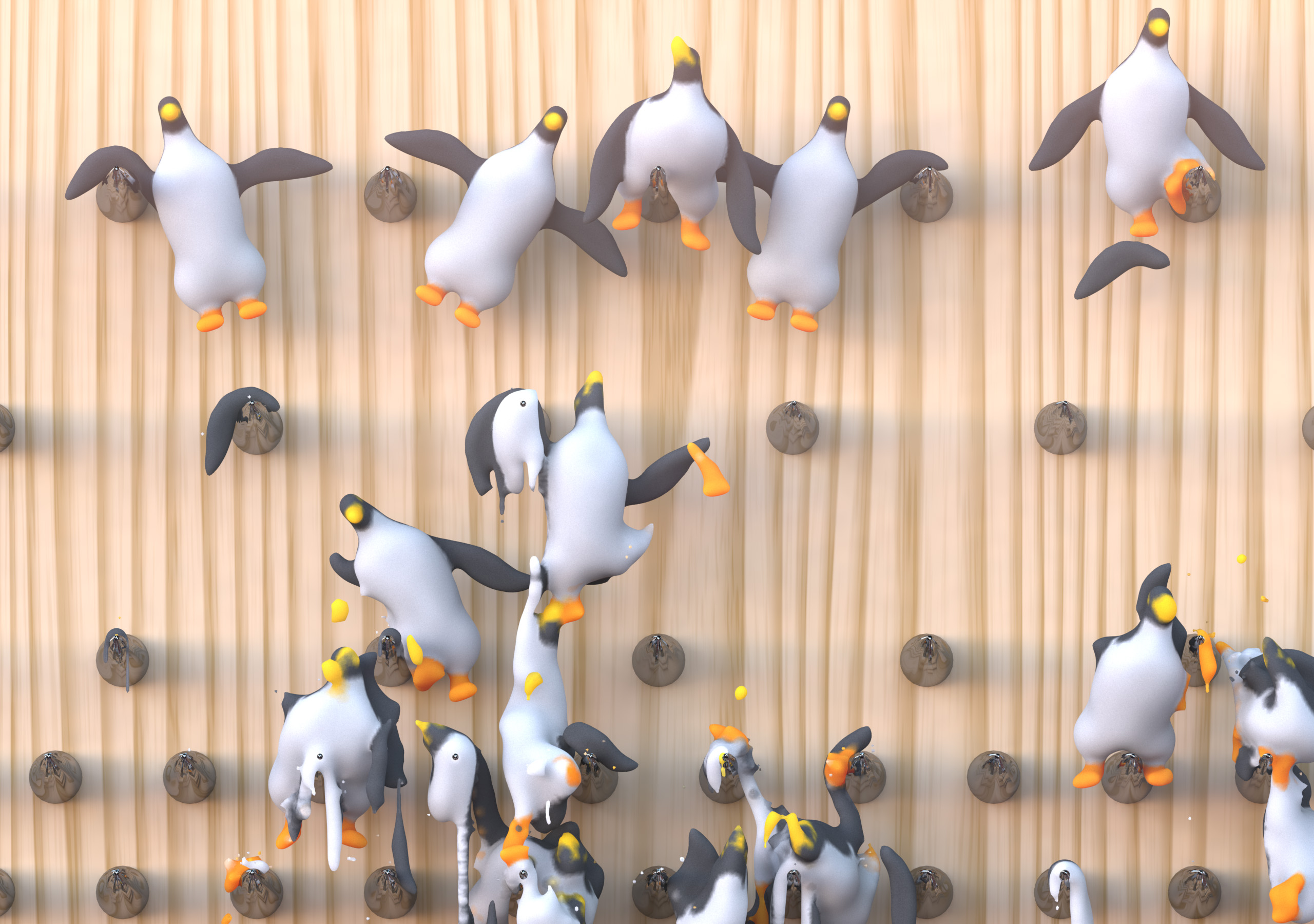Continuum Foam:
A Material Point Method for Shear-Dependent Flows
1Columbia University 2University of Waterloo

Abstract
We consider the simulation of dense foams composed of microscopic bubbles, such as shaving cream and whipped cream. We represent foam not as a collection of discrete bubbles, but instead as a continuum. We employ the Material Point Method (MPM) to discretize a hyperelastic constitutive relation augmented with the Herschel-Bulkley model of non-Newtonian plastic flow, which is known to closely approximate foam behavior. Since large shearing flows in foam can produce poor distributions of material points, a typical MPM implementation can produce non-physical internal holes in the continuum. To address these artifacts, we introduce a particle resampling method for MPM. In addition, we introduce an explicit tearing model to prevent regions from shearing into artificially-thin, honey-like threads. We evaluate our method's efficacy by simulating a number of dense foams, and we validate our method by comparing to real-world footage of foam.
Files
- Paper:
- [PDF]
- Video:
- [YouTube] [720p MP4 (685MB)]
BibTeX
@article{foam15,
author = "Yonghao Yue and Breannan Smith and Christopher Batty and Changxi Zheng and Eitan Grinspun",
title = "Continuum Foam: A Material Point Method for Shear-Dependent Flows",
journal = {ACM Transactions on Graphics},
year = 2015
}
Acknowledgements
We thank Keenan Crane for providing his digital and real face for the pie throw example, as well as Henrique Teles Maia, Nora Wixom and Michelle Ming-Yen Lee for helping to prepare the final version of this paper and the supplementary video. We thank Intel for donating computing hardware, The Foundry for donating MODO licenses, and Adobe for donating Creative Cloud licenses. This work was supported in part by the JSPS Postdoctoral Fellowships for Research Abroad, NSF (Grants IIS-13-19483, CMMI-11- 29917, CAREER-1453101), NSERC (Grant RGPIN-04360-2014), Intel, The Walt Disney Company, Autodesk, Side Effects, NVIDIA, Adobe, and The Foundry.